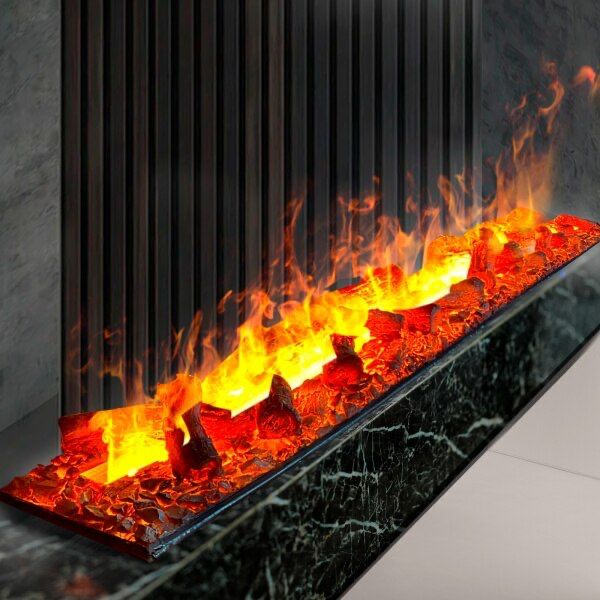A fireplace is more than just a heating appliance; it’s a centerpiece, a source of comfort, and a significant investment in your home. Whether you’re dreaming of a cozy wood-burning hearth, a convenient gas insert, or a stunning stone façade, the success and safety of your project hinge on one critical decision: choosing the right contractor.
The complexities of fireplace installation – involving structural integrity, ventilation, gas lines, electrical work, and critical fire safety codes – mean this is not a job for just any handyman. Here’s a guide to finding trusted fireplace contractors who will deliver a safe, beautiful, and lasting result.
1. Specialization Matters: Look for Fireplace Experts
The first and most crucial step is to seek out contractors who specialize in fireplaces and chimneys.
- Dedicated Fireplace Companies: These businesses are exclusively focused on fireplace sales, installation, repair, and maintenance. Their teams possess deep knowledge of various fireplace types, venting systems, and building codes specific to these structures.
- Certified Masons: For masonry fireplaces or intricate stone surrounds, a certified mason with extensive experience in fireplace construction is invaluable. Look for those who can demonstrate a portfolio of similar work.
- NFI Certified Professionals (or Equivalent): In many regions, certifications like the National Fireplace Institute (NFI) indicate a contractor has passed rigorous exams on fireplace safety, design, and installation for gas, wood, and pellet appliances. While specific certifications may vary by region, seek out contractors who invest in industry-recognized training and credentials.
2. Verify Credentials and Experience
Don’t just take their word for it. A trusted contractor will be transparent about their qualifications.
- Licensing and Insurance: Absolutely essential. Ensure they are properly licensed for construction work in your area and carry comprehensive liability insurance. This protects you from financial responsibility in case of accidents or damage during the project.
- Years in Business: While new businesses can be excellent, contractors with a long-standing history often have a proven track record and deeper experience with a variety of challenging installations.
- Portfolio of Work: Ask to see examples of their completed fireplace projects. Look for quality of craftsmanship, attention to detail, and a consistent aesthetic.
3. Check References and Reviews
Word-of-mouth and public feedback are powerful indicators of reliability.
- Customer References: Request a list of recent clients you can contact. Ask about their experience with the contractor’s communication, timeliness, adherence to budget, and overall satisfaction with the finished work.
- Online Reviews: Check reputable review sites (e.g., Google Reviews, local business directories, industry-specific forums). Pay attention to recurring themes, both positive and negative. How does the contractor respond to criticism?
- Better Business Bureau (BBB): Check for their rating and any customer complaints filed.
4. Understand the Quote and Contract Thoroughly
A professional contractor provides a detailed and transparent proposal.
- Itemized Quotes: The quote should clearly break down costs for labor, materials (including specific fireplace unit, stone, mortar, venting), permits, and any other associated fees. Be wary of vague or lump-sum estimates.
- Clear Scope of Work: The contract should explicitly state everything included in the project, from demolition to cleanup, and any exclusions.
- Payment Schedule: A clear payment schedule with reasonable upfront deposits (typically not more than 10-30% of the total project cost) is standard. Avoid contractors demanding full payment upfront.
- Warranty: Ask about warranties on their workmanship and on the fireplace unit itself.
5. Communication and Professionalism
Observe how they interact with you from the very first contact.
- Responsiveness: Do they return calls and emails promptly?
- Clear Explanations: Do they explain the process, materials, and potential challenges in an understandable way?
- Problem Solvers: Are they proactive in identifying potential issues (e.g., structural concerns, code challenges) and offering solutions?
- Respectful and Tidy: Do they show up on time for appointments? Do they present themselves professionally? Are they willing to protect your home during the installation process?
6. Inquire About Safety and Code Compliance
This is paramount for fireplace projects.
- Code Knowledge: A trusted contractor will be well-versed in all local building and fire safety codes relevant to fireplace installation. They should be able to explain how their work will comply.
- Permits: They should handle all necessary permits and scheduling of inspections with local authorities. Never proceed with a major fireplace installation without proper permits.
- Safety Practices: Observe their commitment to safety, including the use of personal protective equipment (PPE), proper handling of materials, and securing the worksite.
Choosing a trusted fireplace contractor isn’t just about getting a good deal; it’s about investing in the safety, functionality, and lasting beauty of your home. By taking the time to research, verify credentials, and ask the right questions, you’ll secure a professional who can turn your fireplace dream into a reality.






